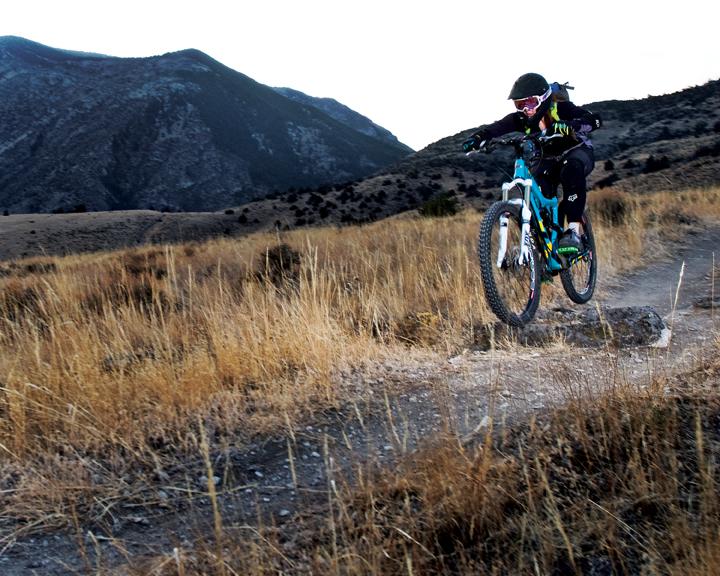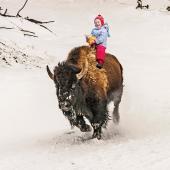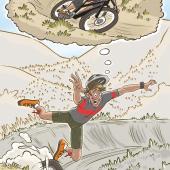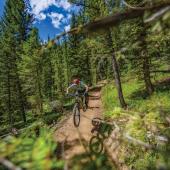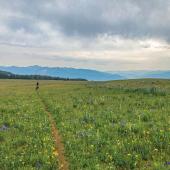Mountain Mindset
Downhill mountain bikers have “a higher threshold for adrenaline and fear,” says sports psychologist Julie Emmermann. Other PhDs say mountain bikers should “have their heads checked,” “pray,” and “not fall off.” And some say that fear simply isn’t a factor, only fun. Achieving optimal physiological arousal, the psychologist’s phrase for “getting psyched up,” is a big part of the game. Dr. Emmerman says that many riders caffeinate to reach their ideal zone, and she confirms rumors that smoking pot is part of the culture among amateurs, but that it is less prevalent among the pros, partly because they learn other means of managing anxiety.
PhDs and riders alike suggest using music as a tool for ideal activation. And simple practices, like completing full breaths and long exhales prior to racing, can be key. On the course, it’s important to avoid holding your breath—fully exhale when possible. Dr. Kristen Dieffenbach says that “a good downhill bike has tons of travel and shock absorption, but still, the rider cannot be rigid on the bike. That is a recipe for disaster. They need to be able to float—arms, legs, hips, back.” Good breathing is crucial to staying loose.
Australian sports psychologist Ian Boyle has racers draw a map of the course to help guide mental imagery for different sections of the course, with emphasis on lines, speed, and specific technique. Red, yellow, and green highlighted areas represent “caution,” “attention,” and “go hard,” respectively. Skilled riders are practiced at drawing attention to their line, rather than avoiding other areas.
One rider’s pre-performance routine involves riding the course at slow speeds, walking sections of it, and making mental notes of optimal lines. He encourages riders to visualize rough sections over and over so that when they come flying around a corner and see a hairy rock garden ahead, they find their line faster. Then they replay the imagery while waiting at the start gate. Dr. Emmerman adds that there should be fluidity to imagery, because the course will inevitably change.
You must stay in the moment, says Dr. Dieffenbach—there is no time for dwelling on a mistake. Local rider and national champion Stew Mitchell says he became more adept at being present when he stopped contemplating winning or losing. He shifted focus to more relevant processes like opportunities to improve, and components of riding fast, smooth, and calm. Good down-hillers aren’t crazy; they’re masters of arousal control, preparation, and immersion in the present.
Dr. Tim Herzog (reachingahead.com) consults with athletes and others on achieving a balanced lifestyle and learning mental skills for optimal performance.

